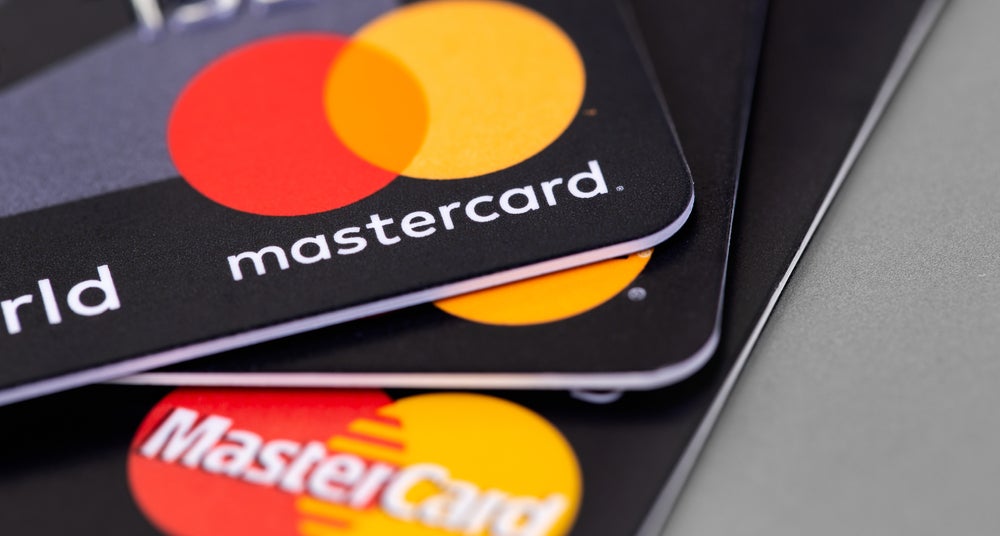
The fast-growing US prepaid card market is supported by an over-abundance of processors.Following a number of recent acquisitions, the prepaid card processing sector is set for further consolidation, Aite Group senior analyst Madeline Aufseeser tells Robin Arnfield
There are 18 prepaid card processors in the US, 17 programme managers, and 14 issuers.
Programme managers are responsible for marketing and distributing prepaid cards and handling customer service. Bank issuers provide programme managers with BINs (bank identification numbers) for their cards, and are responsible for risk management, portfolio underwriting, regulatory and card network compliance, and account management. Processors handle transaction authorisation and settlement, card manufacture, and account reloading.
However, Madeline Aufseeser of the consultants Aite Group tells CI that the US prepaid card market is complex, as roles can overlap between issuers, program managers and processors. "Some of these organisations play across multiple categories," she notes.
Consolidation
Since there are now more processors than program managers or issuers, and as prepaid card gross dollar volumes (GDV) are concentrated among the largest US issuers and program managers, Aufseeser says the US market won’t be able to support 18 processors. Processors targeting smaller issuers and program managers will struggle to achieve market share and economies of scale, she says.
How well do you really know your competitors?
Access the most comprehensive Company Profiles on the market, powered by GlobalData. Save hours of research. Gain competitive edge.

Thank you!
Your download email will arrive shortly
Not ready to buy yet? Download a free sample
We are confident about the unique quality of our Company Profiles. However, we want you to make the most beneficial decision for your business, so we offer a free sample that you can download by submitting the below form
By GlobalDataIn July 2013, TSYS completed its $1.14bn acquisition of US prepaid card programme manager and processor NetSpend, while US Bank acquired processor FSV Payment Systems in November 2012 for an undisclosed sum. In April 2012, Google bought TXvia, which subsequently left the prepaid card processing business.US prepaid card program manager Green Dot paid $2.5m in January 2012 for eCommLink’s processing assets. Further processor acquisitions and mergers are likely, Aufseeser says. "There are way too many processors," she tells Cards International. Consolidation is also likely among smaller program managers and issuers.
Market growth
Aufseeser’s Aite Group report "The Contenders: Prepaid Debit and Payroll Cards Reach Ubiquity" predicts that GDV on US general-purpose reloadable (GPR) prepaid debit cards will rise from an estimated $54bn in 2012 to $68bn in 2013 and $106bn in 2016. She forecasts that GDV on payroll cards will rise from an estimated $34bn in 2012 to $43bn in 2013 and $63bn in 2016.
Separately, First Annapolis Consulting predicts that US open-loop prepaid card revenues will rise from $3.8bn in 2012 to $4.5bn in 2013, reaching $7.6bn in 2017. GPR products accounted for an estimated 42% of 2012 total open-loop prepaid revenues, the consultancy says.
A key factor driving growth in GPR prepaid cards is the disappearance of free chequeing accounts following the October 2011 introduction of the Durbin Amendment to Dodd-Frank Durbin requires US banks with assets of over $10bn to cut debit card interchange from an average of $0.44 per transaction to $0.21 plus 0.05% of the transaction value.
"Durbin’s fallout was that big banks increased their chequeing account charges to compensate for the cap on debit card interchange," says Aufseeser. "This led to the death of free chequeing accounts, which resulted in some US consumers with low bank balances migrating from traditional bank accounts to lower-cost GPR prepaid cards."
A number of major US banks such as JPMorgan Chase and U.S. Bank have entered the GPR prepaid card market to capitalise on demand from low-income consumers.
Market leaders
Aufseeser says that three program managers and issuers dominate the US GPR prepaid card market. NetSpend has around 22% of total USGPR prepaid card GDV in 2013, with H&R Block accounting for 21% and Green Dot 25%. While NetSpend does its own processing, Green Dot uses TSYS and H&R Block uses FIS for processing. The remaining 32% of GPR prepaid card GDV – estimated at $21.6bn in 2013 – is divided among many smaller program managers and issuers.
Green Dot renewed its processing contract with TSYS in February 2013 to December2015. However, Green Dot said in January 2012 when buying eCommLink’s processing assets, that it intends to take processing in-house eventually.
The First Data Money Network, in partnership with ADP, controls 50% of total US prepaid payroll card GDV in 2013, Aufseeser says. First Data acts as processor for its payroll cards. The remaining $21.5bn is shared among smaller players, some of which, like Ceridian, also process their own payroll cards.
New entrants
According to Aufseeser, a number of small US banks with less than $10bn in assets are interested in becoming prepaid card issuers which sell their BINs to programme managers. The reason for this is the fact that, under Durbin, smaller GPR prepaid card issuers have an interchange fee advantage over larger issuers.
GPR prepaid cards issued by banks with over $10bn in assets are only exempt from Durbin’sdebit interchange restrictions if they don’t offer bank account-style services such as recurring bill payments via ACH networks. Consequently, large banks offering feature-rich GPR prepaid cards to low-income consumers may charge cardholders a fee to cover the lower interchange on these cards, Aufseeser says. Alternatively, these large banks may offer fee-free basic GPR cards charging full interchange.
Given that the GPR prepaid card market is expected to double in size between 2012 and 2016, there is definitely room for small bank issuers to enter the market, Aufseeser says. Currently, the largest US prepaid card issuers are MetaBank and Bancorp Bank.
In July 2013, Louisville, Kentucky-based Republic Bank & Trust Company agreed to buy H&R Block Bank, which acts as the issuer for H&R Block’s prepaid cards, subject to regulatory approval. AP reported that Republic Bank will take over H&R Block’s Emerald tax refund cards.
Guidance
In "US Prepaid Processing: a Practical Market Guide", Aufseeser provides guidance for existing and new prepaid card issuers and program managers on how to select an appropriate processor for their requirements.
Thereport says there are four different processing options for program managers and issuers: proprietary platforms which are developed in-house; purchasedsoftware; hosted processing; and turnkey, also referred to as white-label or packaged,solutions. Buying processing software offers issuers and program managers the greatest option for product flexibility and control, although hosted processing systems also have good flexibility. Turnkey platforms haveno flexibility, but offer the benefit of limited financial exposure and easy deployment.
Aufseeser says that only very large banks which already have in-house card processing systems, should consider adapting these platforms for prepaid card processing. Issuers and program managers considering offering large, complex prepaid card programs should either purchase a software solution, or outsource their processing to a hosted service provider, she recommends.
Smaller program managers and issuers such as community banks and credit unions, are better served by using a turnkey platform.If issuers and program managers expect to have under 100,000 prepaid cards in their portfolio, they should use a turnkey processing platform, Aufseeser says.
"Issuers and programme managers need to define their business objectives and their processing needs before setting up partnerships with processors," Aufseeser says. "They need to decide what types of prepaid card products they are going to offer, and how they are going to distribute these products."
Prepaid card programs that are only offered to customers who are rejected for credit cards or bank accounts, are simpler to operate than full-scale, multi-product offerings that are widely marketed to consumers, Aufseeser says.
Aufseeser says that issuers and program managers wanting to offer a wide range of prepaid products such as GPR cards, gift cards, incentive cards, travel money cards or teenager cards, should opt either for purchased software or hosted solutions. "Prepaid cards offered to customers rejected for credit cards and bank accounts should be operated on turnkey platforms," she says.
If issuers and programme managers decide to offer reloadable prepaid cards – as opposed to single-load cards – they need to decide what features to offer and determine whether their processor will support these features. Account transfer, bill payment, remote deposit capture of cheques via mobile devices, text messaging, and merchant-funded incentives are all common prepaid card features, but are not supported by all processors, Aufseeser says.
If program managers and issuers want to distribute prepaid cards via bank branches, retailers and the Internet, they will need robust processing solutions that can support the different requirements of these channels.
Regulations
"To avoid regulatory pitfalls, programme managers and issuers need to be completely transparent in their marketing materials and consumer product disclosures about fees and transaction limits," Aufseeser says.
In July 2013, the New York Times reported that New York State Attorney General Eric Schneiderman is investigating high fees charged by prepaid payroll issuers to hourly-paid workers whose salaries are deposited to payroll cards. These fees can be so high that payroll cardholders end up earning less than the minimum wage, yet many workers feel they have no choice but to accept the cards, the newspaper reported. In addition, 16 US Democratic Senators wrote to the Consumer Financial Protection Bureau (CFPB) and the US Department of Labor in July 2013 asking them to investigate the fees and practices associated with payroll cards.
The CFPB, a federal government agency, launched a consultation on GPR prepaid cards in May 2012, stating that GPR cards have far fewer regulatory protections than bank accounts or debit cards. "I think the CFPB could introduce regulations on GPR prepaid cards before the end of 2013, because, with the increasing number of prepaid card issuers, there is a greater need for clear prepaid card industry regulations," says Patricia Hewitt, director, debit advisory service at Mercator Advisory Group. "The existing regulations are unclear."
Jason Kratovil, deputy executive director and vice president, Card Policy Council at the American Bankers Association, says he thinks the CFPB could also regulate payroll cards.
Strengths and weaknesses
"USPrepaid Processing: a Practical Market Guide" provides an assessment of the strengths and weaknesses of key US prepaid card processors.
ACI Worldwide first launched its prepaid card processing platform in Canada, and only recently entered the US market, Aufseeser says. Its prepaid platform is a baseline product, requiring customers to add additional features from other vendors. However, the platform can be integrated with other ACI credit card and debit card processing products so that clients have a 360-degree view of their customer’s relationship with the bank.
FIS’s prepaid card processing business has grown largely through acquisition, Aufseeser says. The company processes over 600m prepaid cards of all product types on its platform, including 200m active cards. However, FIS has yet to integrate its two separate prepaid platforms, a legacy of its acquisitions of Metavante in 2009 and eFunds, which owned the WildCard prepaid platform, in 2007. Aufseeser says the WildCard platform (now called Sunrise) is highly customisable by individual issuers, while the Metavante platform (now called North) offers international issuance capabilities.
First Data has less experience of open-loop GPR prepaid and gift card processing than other players of comparable size, and has chosen to focus on prepaid payroll cards and closed-loop gift cards.
As i2c is a comparatively small organisation, its staff don’t always have the depth of market knowledge that some of the larger processors enjoy, Aufseeser says. However, i2c is nimble and able to bring new products and features to market very quickly. It also has a single platform which is able to support international as well as US prepaid card issuance.
NetSpend offers smaller issuers and program managers a turnkey processing platform, Aufseeser notes, while TSYS operates on a hosted processing model.







